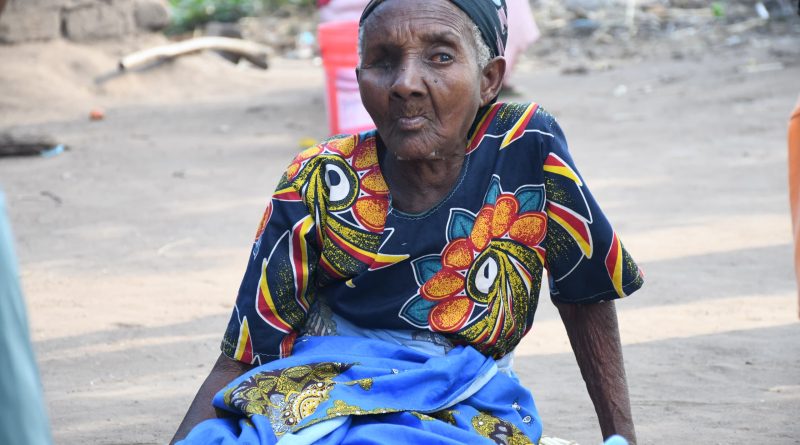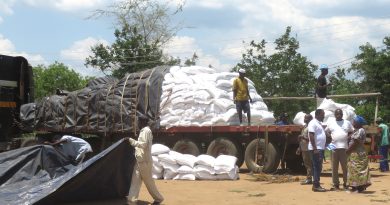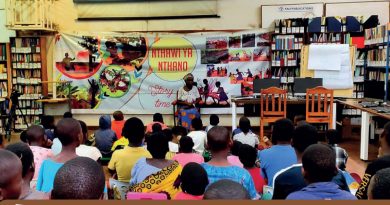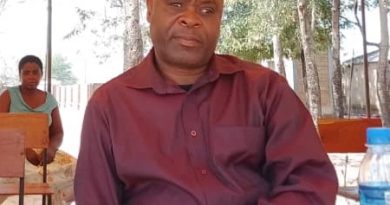Heaven on Earth: Beaming smiles of Mtukula Pakhomo
By Precious Msosa
Launched in 2006, with an aim of among others lessening the burden of food scarcity among the vulnerable, the Social Cash Transfer Programme (SCTP) – well known as Mtukula Pakhomo – appears to have indeed lived the dream.
As an eye opener to others, the programme offered a bag of maize to the household, while others received K70,000 during the lean period – running from October. These beneficiaries are the ones the Malawi Vulnerability Assessment Committee (MVAC) 2024 report indicated would be among the 5.7 million food insecure during the 2024/25 harvest season.
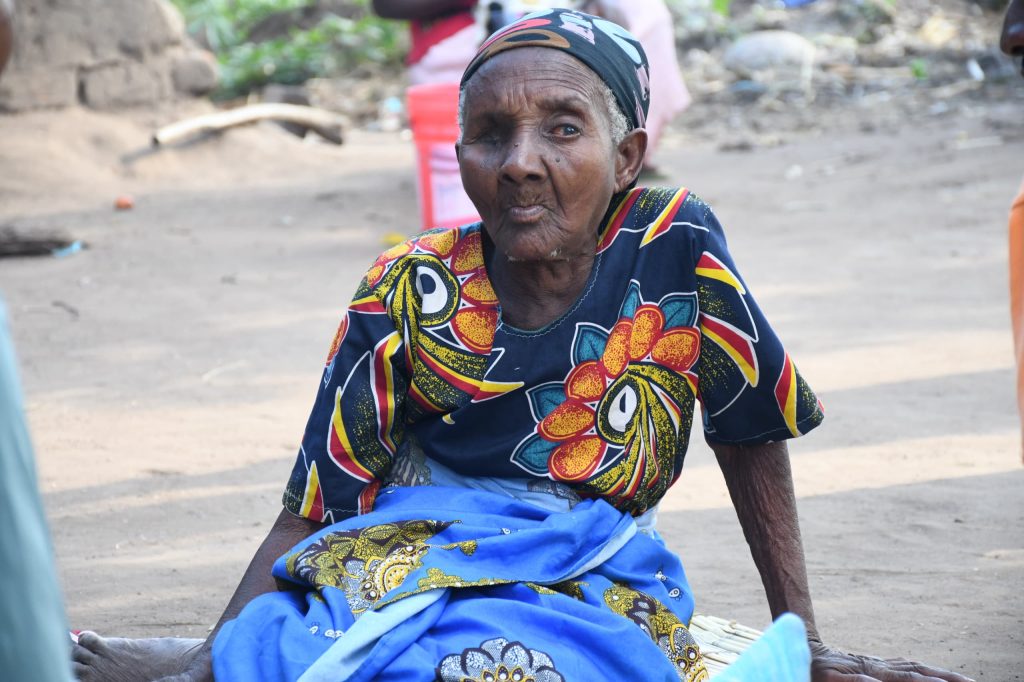
One of the beneficiaries, gogo Esnart Walasi (Photo Credit: Precious Msosa, Montfort Media)
Going by the numerous voices of the beneficiaries, it is no doubt that the programme has positively touched the lives of so many people – no wonder there are loud calls to continue the programme.
A recent visit of journalists to some of the households under the programme in Machinga confirmed how crucial the programme has been.
According to 58-year-old Leonard Mwakhula of Mtila Village, Traditional Authority Sitola in the district, Mtukula Pakhomo has been the life saver to his family because it has helped him to adequately feed his dependents. Mwakhula received both a 50 Kg bag of maize and K70,000 which he partly used to buy chickens.
“I will be lying if I say the programme has not been of much help to my family. Through it, I have managed to adequately feed my family – especially children. They couldn’t go to school on an empty stomach. I have also managed to support one of the children with school fees,” said Mwakhula.
He explained that in the past, he used to have a proper harvest because he could manage the farm inputs as the weather was also not harsh. But in recent years things have not been rosy for him as climate change has taken a toll on farming.
Mwakhula who is married with seven children added that effects of drought made him to replant the maize crop three times – but all in vain.
He said he wished government and its partners continued with the gesture [Mtukula Pakhomo] as many people are still grappling with food insecurity.
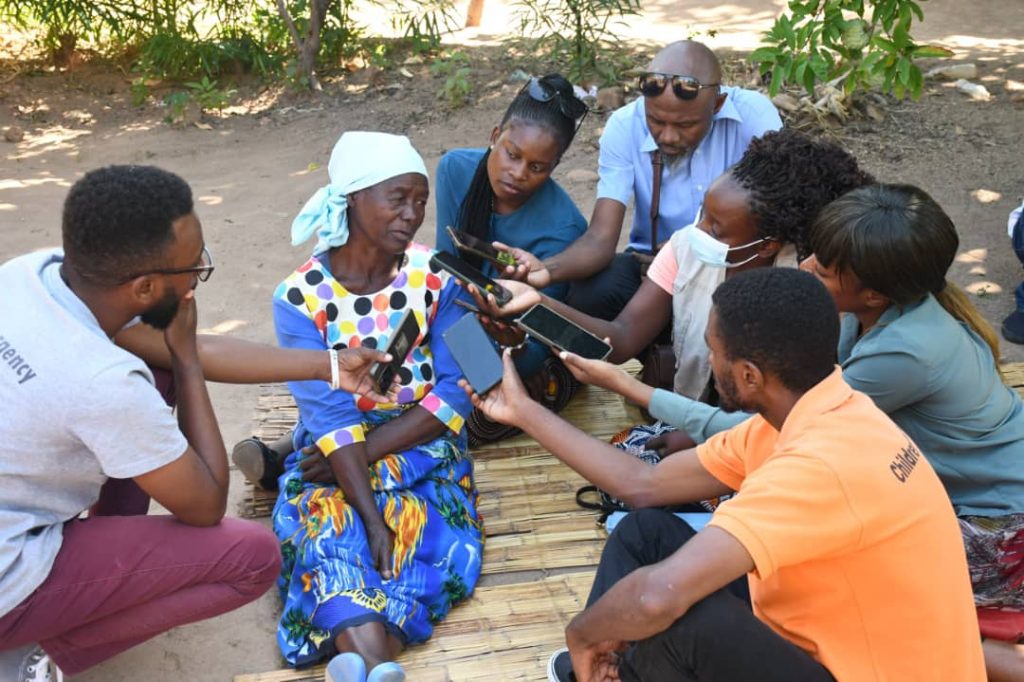
Journalists interviewing mayi Sailesi (Photo Credit: Precious Msosa, Montfort Media)
“It is my wish that government should extend the period because as it is, a lot of families are still facing hunger. Although the money was somehow not enough with the high cost of living, I still managed to do something important with it. All in all, the programme has been a life saver to many families,” he said.
He advised people who are on similar government supported social programmes to take good care of the money or items they receive.
“To my fellow men, when you get the money, please sit down with your wife and plan together on how appropriate you can use the money. Spending it on beer drinking only punishes the family further and defeats the purpose of these social safety nets,” he added.
Another beneficiary – Patuma Sailesi of Kwilasi village T/A Sitola in the same district – said when she was drafted into Mtukula Pakhomo, it was like “heaven on earth” for her. She said the programme relieved her from relying on vegetables as the main meal.
“Vegetables were the main dish for us until the time I was enrolled into Mtukula Pakhomo. When I first got the bag of maize, I couldn’t believe it and it was like heaven on earth for me. I was full of joy,” she said.
Patuma – who said she was added into the programme together with her grandchild – said her maize field was a sorry sight and couldn’t offer her any hope due to lack of fertilizer.
“My grandchildren could hardly attend classes. Although the school is just nearby, they couldn’t go on an empty stomach. But when we started enjoying the fruits of Mtukula Pakhomo, the children were able to go to school,” she added.
She however said it is unfortunate that their time into the programme was over.
Asked how she was surviving during the months she was not benefitting, the 87-year-old granny, who looks younger than her age, said she relied on selling mapoza (wild fruits) – a business which plays a small role to relieve the family from the pangs of hunger. Coincidentally, on the day of interviewing her, some journalists and Ministry of Gender and Social Welfare officials bought from her the fruits and sampled them to their delight.
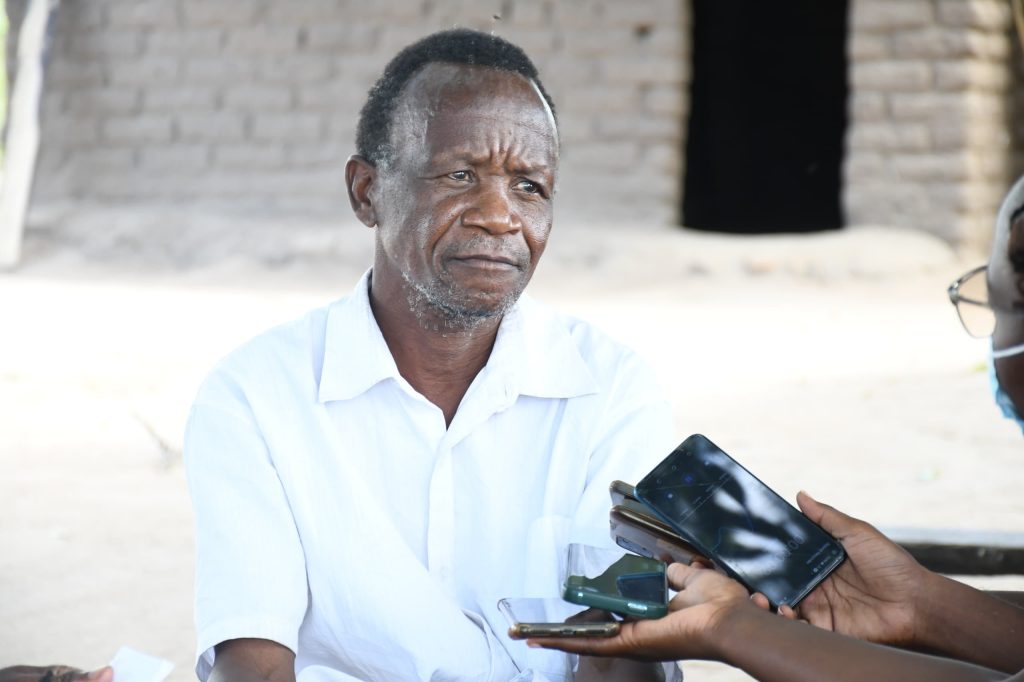
Mr Leonard Mwakhula: The programme has been a life saver (Photo Credit: Precious Msosa, Montfort Media)
Such were the happy voices from other beneficiaries in Machinga, who lamented the fact that the Mtukula Pakhomo lean period support is over.
Machinga Principal Social Welfare Officer, Daniel Zidana, said he is happy with how the exercise was run because they didn’t get any reports of chiefs interfering, let alone the beneficiaries selling the bags of maize.
However, he said the main challenge was that during the first month, the beneficiaries were forced to share the bag due to some logistical hiccups.
In Machinga, the programme was supported by the government of Germany, through KFW and about 18,000 households benefitted from Mtukula Pakhomo.

